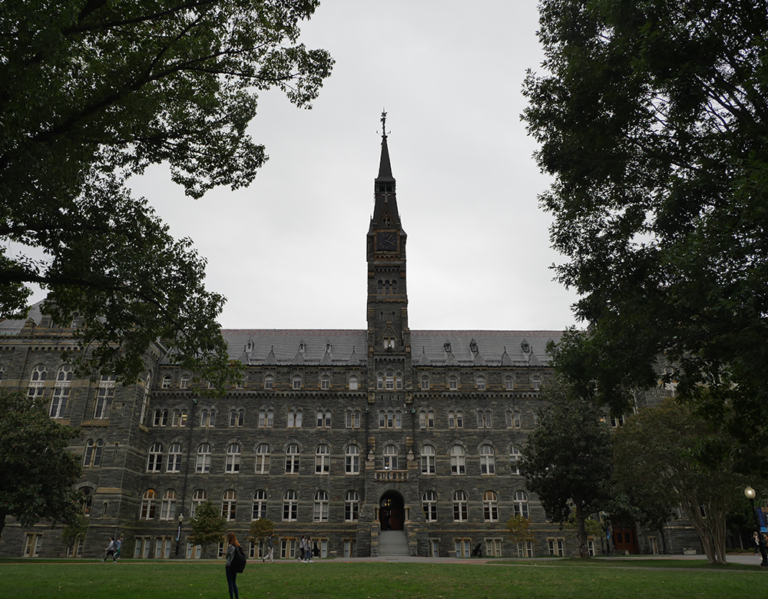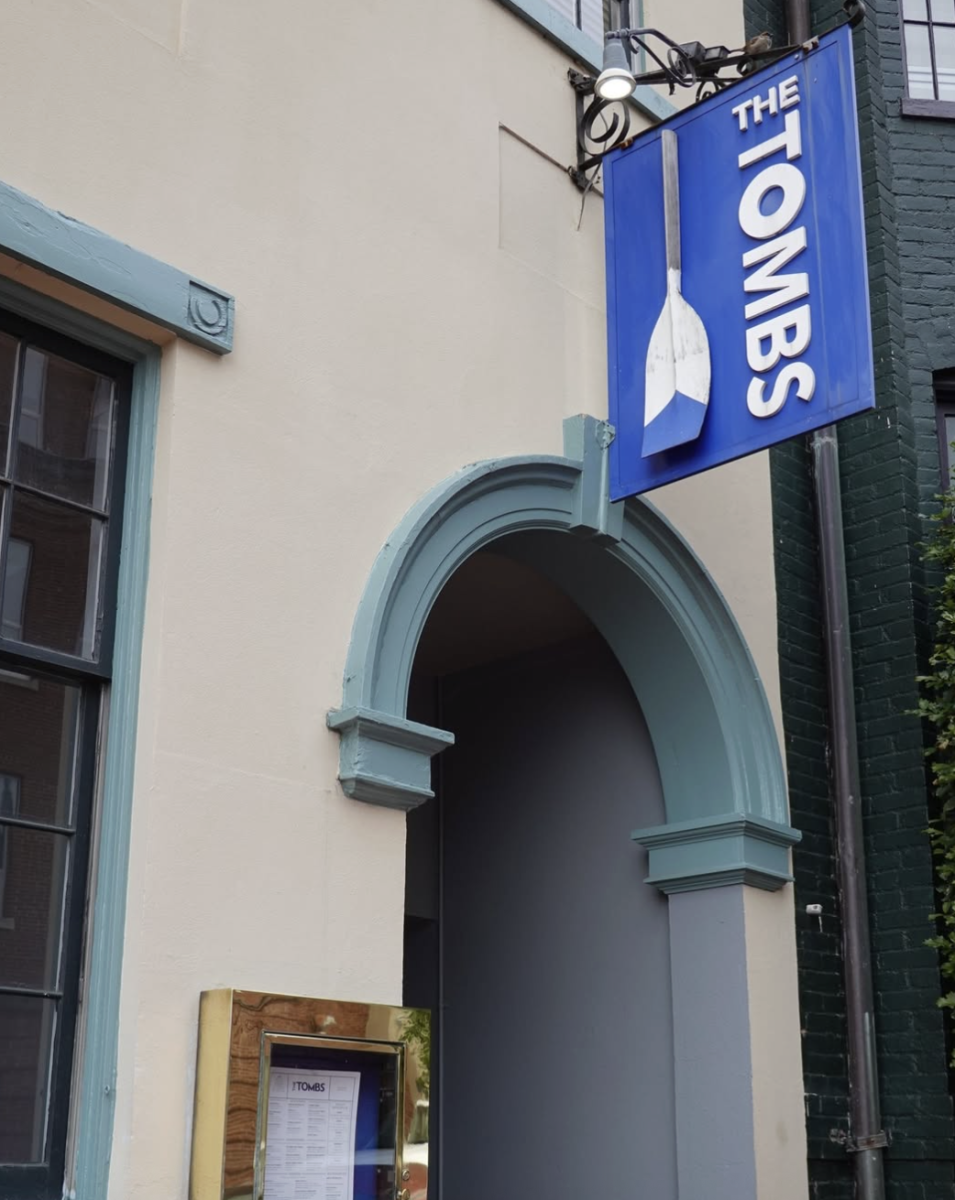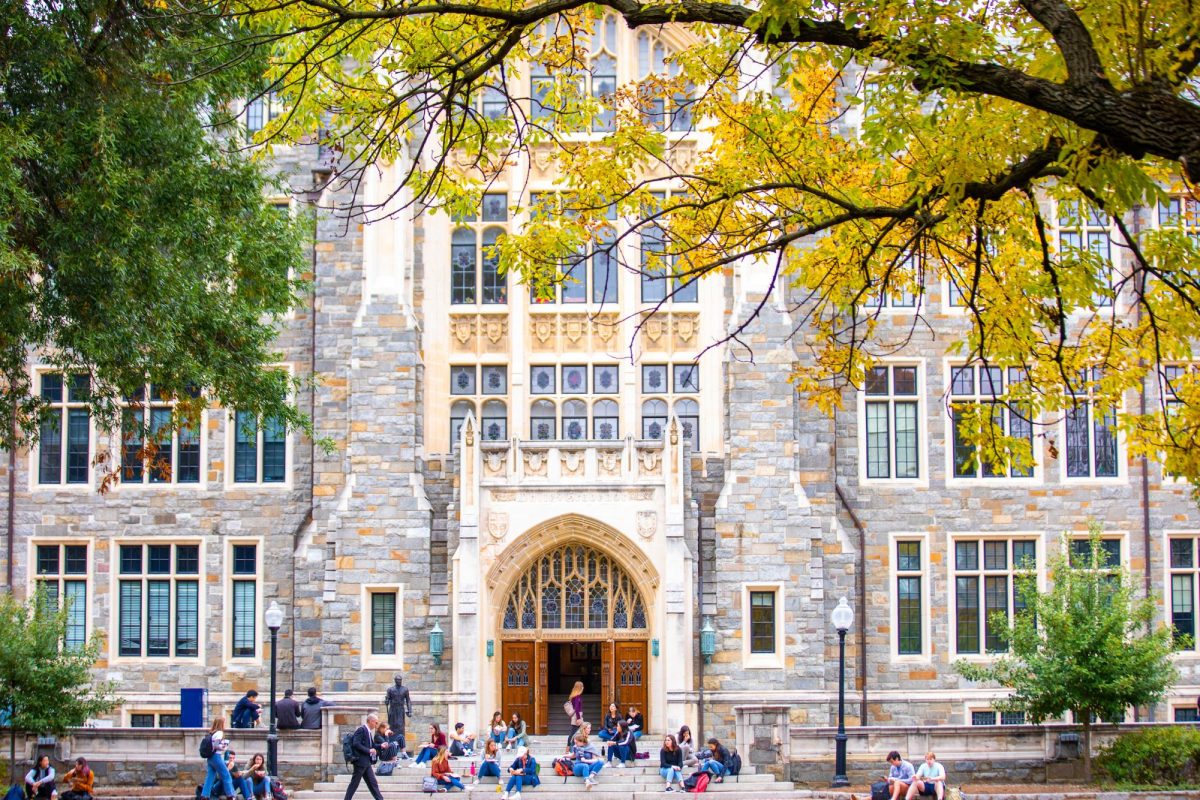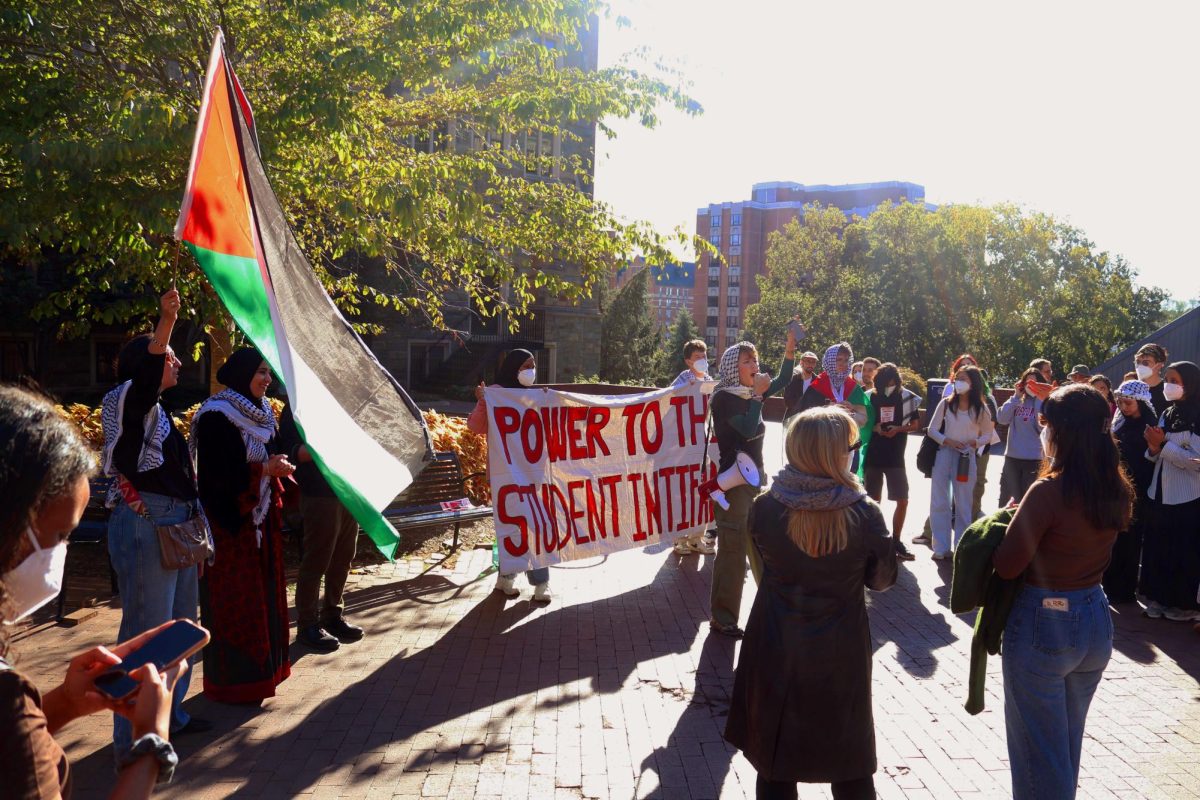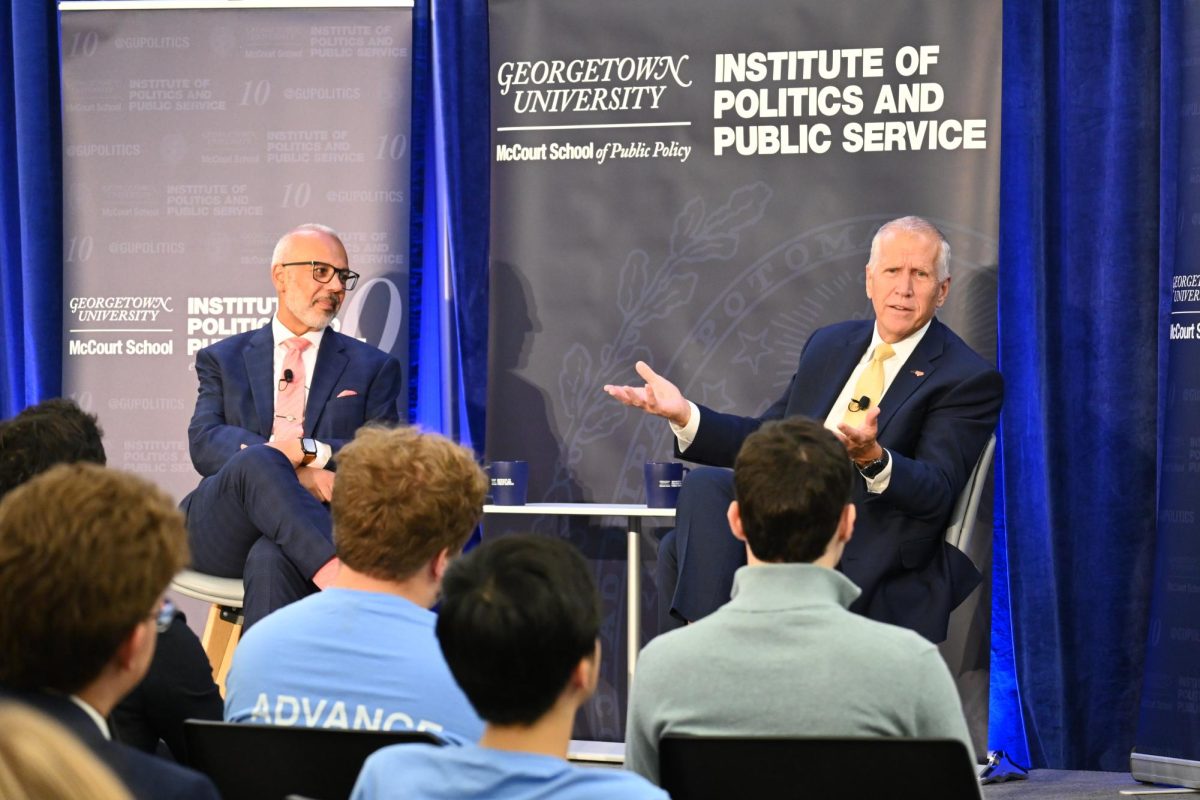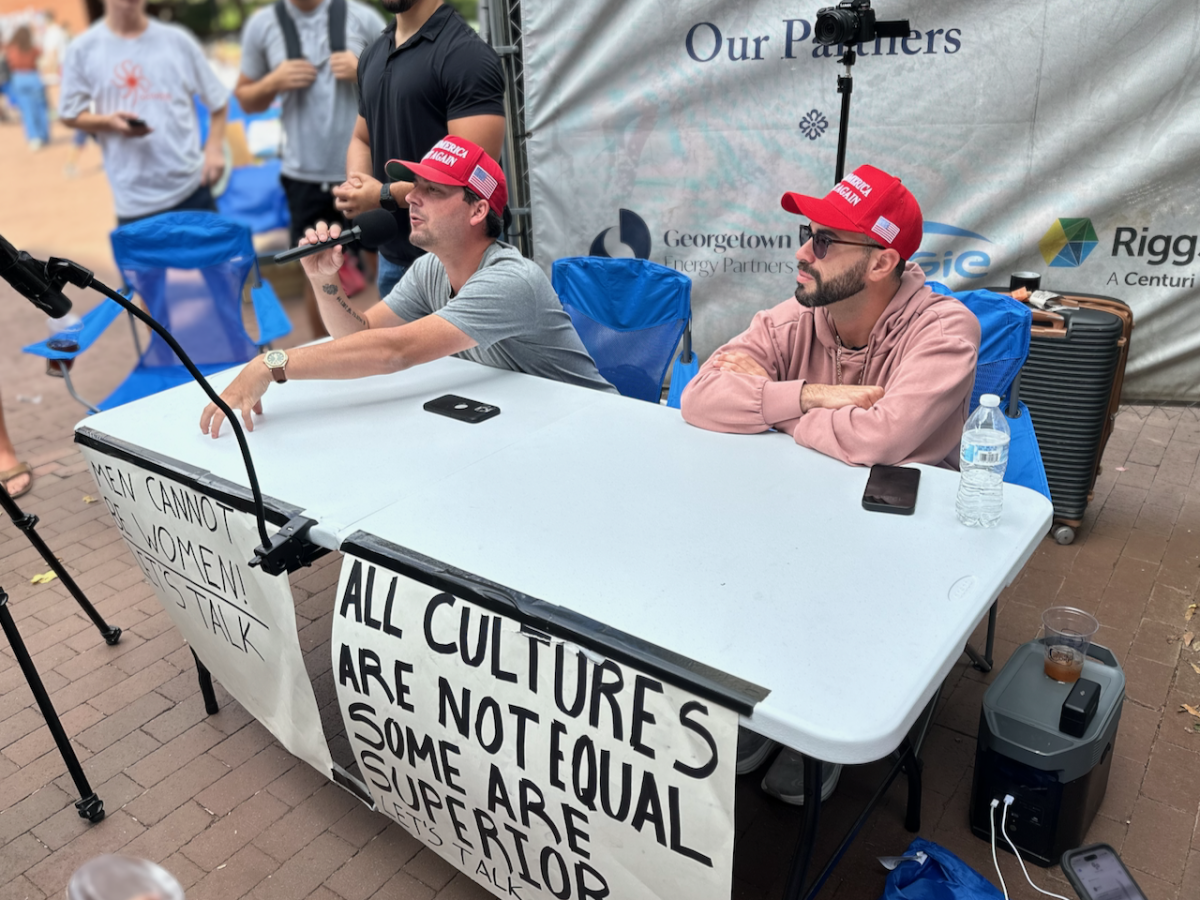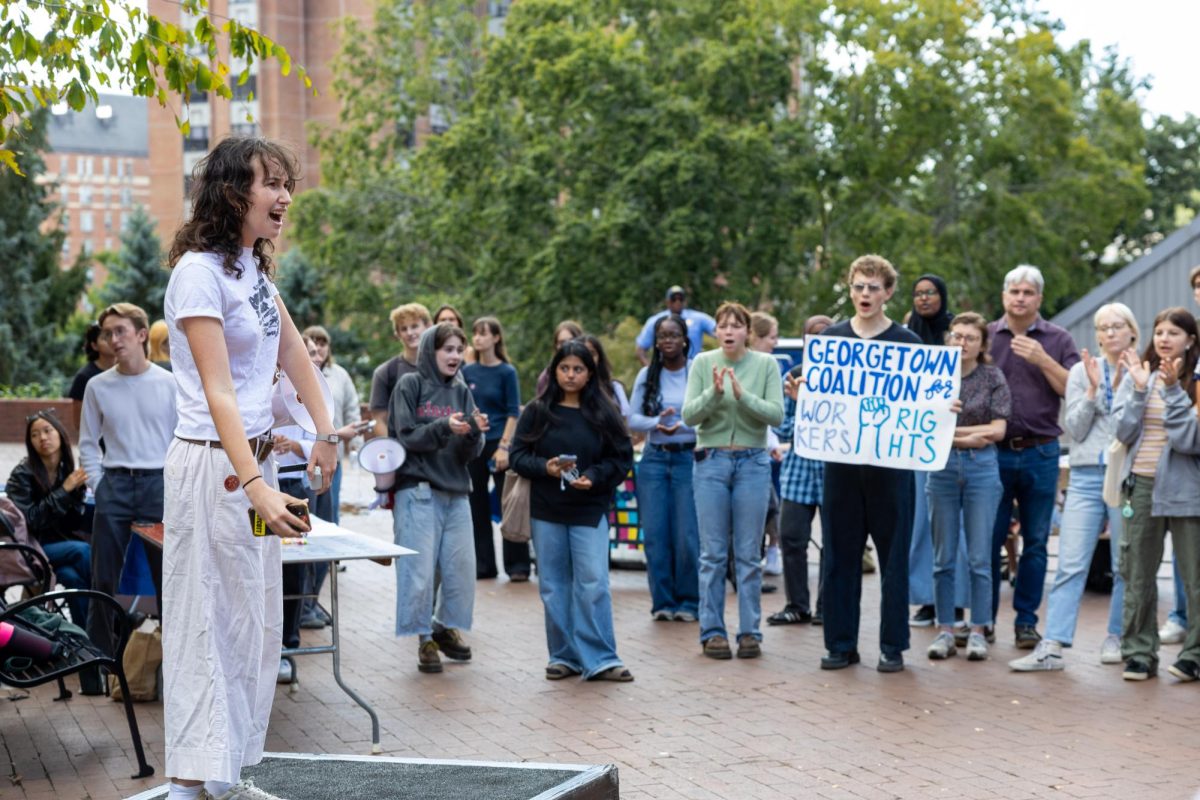Georgetown University ranked 240th out of 251 universities in a prominent civil liberties organization’s rankings of freedom of speech on college campuses.
The report, the sixth annual College Free Speech Ranking from the Foundation for Individual Rights and Expression (FIRE), a controversial nonprofit which aims to protect free speech and thought on college campuses, gave Georgetown its highest ranking since the original 2020 report, although the university has consistently placed in the bottom quartile. This year, Georgetown ranked above Columbia University and Harvard University, which ranked 250th and 251st, respectively, with the University of Virginia placing first overall.
A university spokesperson said Georgetown is committed to fostering an environment that encourages free expression and discourse, referencing the Speech and Expression policy.
“We respect the rights of members of our community to express their personal views and are committed to maintaining the values of academic freedom and serving as a forum for the free exchange of ideas, even when those ideas may be controversial and objectionable to some,” a university spokesperson wrote to The Hoya. “Georgetown is committed to ensuring that all members of our community have a safe and welcoming place to learn and receive the support they need to do so.”
“While members of our community exercise freedom of speech, we work towards a living learning community that is free of bias and geared toward thoughtful, respectful dialogue,” the spokesperson added.
FIRE has been criticized for taking donations from conservative think tanks including the Charles Koch Institute, which promotes conservative economic policies such as deregulation and lower taxes. However, the organization also takes donations from center-left organizations including the Knight Foundation, which funds free speech efforts in journalism and arts, and Bloomberg Philanthropies, which donates to environment, public health, the arts, government innovation and education efforts.
To create the rankings, FIRE collaborates with the research organization College Pulse, sampling over 58,000 students, including 102 undergraduates at Georgetown, on questions related to self-censorship, shouting down or disinviting speakers and comfort expressing ideas. The ranking grades universities in fourteen categories, seven of which focus on student perceptions and the other seven of which assess the behavior of administration, students and faculty with regards to free speech.
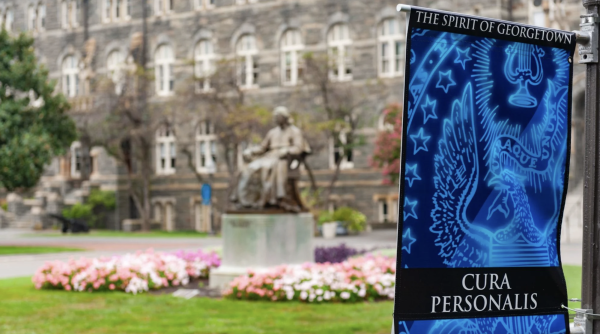
FIRE’s report gives Georgetown a score of 26 out of 100, classifying the university with a “red light” rating, meaning that it has at least one policy restricting free speech, and rating it as having a “poor” speech climate. In 2022, FIRE awarded Georgetown with its Lifetime Censorship Award for “those colleges that deserve special recognition for their commitment to censorship.”
Sean Stevens, FIRE’s chief research adviser, said Georgetown’s improved free speech ranking may be reflective of other universities’ falls in the rankings due to increasingly restrictive free speech climates, citing Columbia University’s fall from 214th to 250th as an example.
“They’re probably in a pretty similar spot,” Stevens told The Hoya. “But they might have moved up because some other schools just got worse this year.”
Mahika Sharma (SFS ’27), a researcher at the Free Speech Project, a nonpartisan university initiative that conducts research on free speech in the United States, said she does not view Georgetown’s free speech climate as being as volatile as other universities’.
“I think that Georgetown has proved to be more of an open place when it comes to letting people demonstrate and protest for what they believe in,” Sharma told The Hoya. “Of course, I don’t think anything is perfect. I think there are always going to be problems, no matter how you look at it, whether that’s from a student or administration perspective.”
Stevens noted that while the rankings were released after nationwide protests related to the Israel-Hamas war on college campuses in April 2024, FIRE did not directly consider universities’ responses to these events in their evaluation. However, Stevens said these responses could have influenced the perspectives of surveyed students.
“At schools where students were clearly not happy with how the administration handled these protests, it shows up in the rankings,” Stevens said.
Kristian Skovrup (CAS ’26), a board member of Georgetown’s chapter of the American Civil Liberties Union (ACLU), a legal nonprofit that advocates for civil rights protections, said that navigating free speech during a politically emotional time can be difficult, but all communities must be able to share opinions.
“I think the various relationships that students face in their lives may push them to be conflict avoidant on some of these hot button issues, especially in cases where power dynamics between students and the administration/faculty exist,” Skovrup wrote to The Hoya. “These dynamics of self-censorship are not unique to Georgetown and navigating them successfully requires a significant amount of time and energy from all parties.”
Sharma said free speech, both on campus and in society at large, is crucial for safeguarding the vitality of American democracy.
“Free speech is something that’s absolutely essential for the continuation of a functioning democracy now, more than ever, given how many barriers there are to free speech in so many different places,” Sharma said.
Skovrup said he believes Georgetown’s work to feature speakers from across the political spectrum represents a step in the right direction for promoting free speech.
“Georgetown breeds passionate students, and many people both on and off this campus have intense feelings about the issue that face us today,” Skovrup wrote. “Allowing for a free exchange of speech gives us an ability to legitimize our thoughts and feelings about issues, but also a way to process them in a constructive way.”



